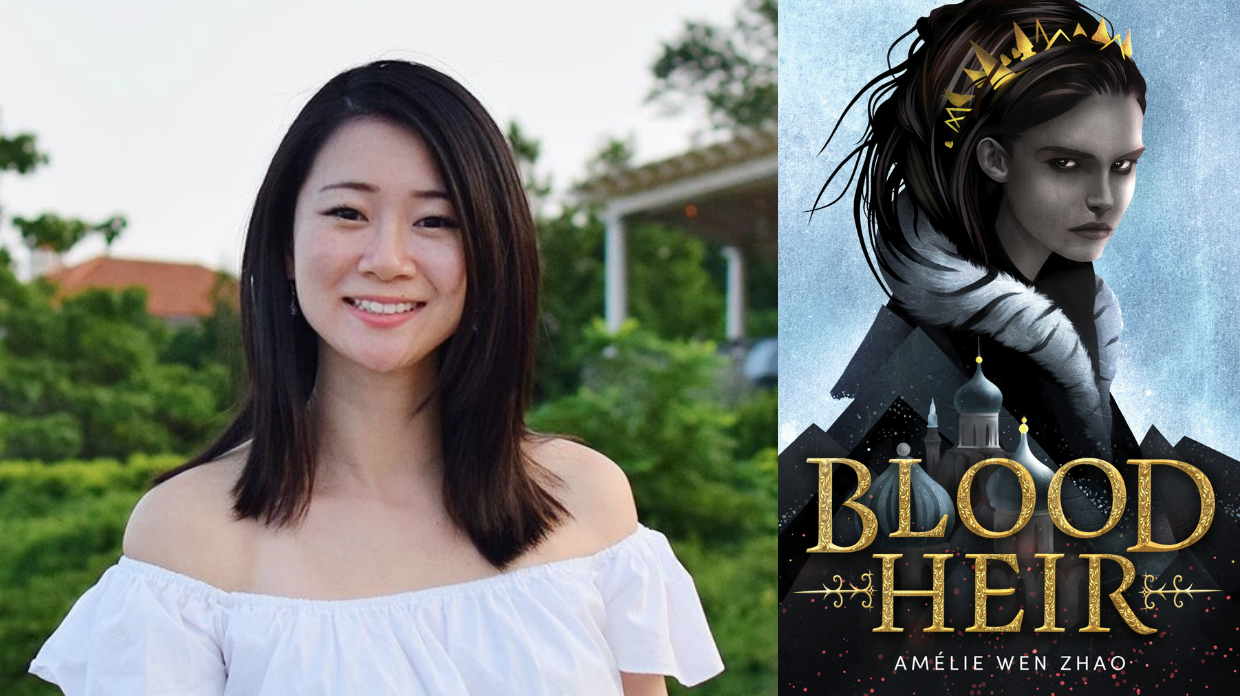Followers have proved themselves all-powerful in the online community again. In the online YA community, YA influencer and upcoming author Amélie Wen Zhao, has cancelled her highly-anticipated début Blood Heir amid accusations of hypocrisy and racism.
Thanks to a socially-aware foundation to her authorship and online presence, Zhao was, initially, the perfect YA author and influencer. The YA audience of 2019 demand nothing less than magical and socially-conscious writing from authors who truly care about the cause. Sensitivity to marginalisation of POC authors and characters is key: think The Hate U Give, a YA novel about an African-American girl who’s the only witness to the racially-motivated murder of her black friend by a white policeman, published in 2017 and transformed into a blockbuster movie in 2018. Zhao’s Blood Heir, written by a POC (Zhao immigrated to the United States from China when she was eighteen) and supposedly rich in diverse characters, fitted the bill perfectly. Set to be the first in a trilogy, the loose retelling of Anastasia was a woke YA book for a woke audience.
Not only did Blood Heir meet the requirements for success, so did its author: Zhao was the poster child for the new, enlightened age of YA authors. She won her publishing deal through a Twitter pitching event for marginalized creators, and since she won the publishing deal, she proved herself a paragon of supportiveness and activism on social media. Her Twitter feed was full of supportive tweets to other authors and musings about the obstacles she’s faced being a minority ethnicity. Zhao overwhelmingly embodied the values that make her upcoming book so important and popular in the YA world.
Controversy came when members of the YA community began tweeting about an anonymous author who was harassing book bloggers and “shit talking other authors of colour”. Although remaining unnamed, one Twitter user, @LegallyPaige, fanned the flames by revealing the author’s identity – Zhao.
Although not offering any proof of the screenshots that Zhao was supposedly taking of reviewers who reviewed Blood Heir negatively, the scandal only snowballed from there. Now the accusations were aimed not at Zhao’s behaviour but at her book itself. Crucially, it was accused of racial insensitivity, a fatal blow to Zhao’s squeaky-clean image as the perfect proponent of racial representation and sensitivity in YA authorship and novels.
Blood Heir is accused of containing a scene of a slave auction in which a black slave is casually murdered. Readers pointed out the hypocrisy in setting a novel in a world in which “oppression is blind to skin colour” yet heavily feature tropes of the American slave trade. Ultimately, they found Blood Heir guilty of anti-blackness. Whether this is true or not is impossible to say: all the accusations remain unverifiable until its publishing, likely to be in the distant future considering the furore Zhao and her writing has been victim to.
Zhao cancelled printing of her book and posted an apology on Twitter. In it, she said she was drawing on her “own multicultural upbringing and the complex history of [her] heritage that has incidences of bias and oppression”, and that the slavery underpinning Blood Heir is “a specific critique of the epidemic of indentured labour and human trafficking prevalent in many industries across Asia, including in [her] own home country.” She finished by saying she didn’t intend to harm any readers, “particularly those whom [she] seeks to write and empower.”
Until we know whether the claims against Blood Heir are false or not, we can’t be certain if Zhao’s retraction of her book from publishing was a cowardly pandering-to-the-masses or a career-saving powerplay. What is clear, though, is the power of online followers. The moral of the tale is when you’re an online social media influencer, you don’t control your followers; they control you.
Georgie Wardall
Image: Den of Geek

